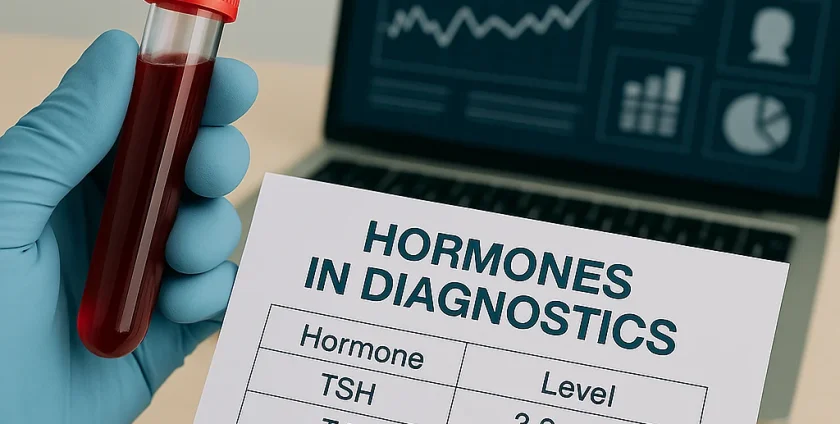
Hormones act as chemical messengers, regulating numerous processes in the body, including metabolism, reproductive functions, mood, and sleep cycles. Many endocrine disorders manifest with subtle symptoms such as weight fluctuations, menstrual irregularities, or mood changes. Hormonal blood tests provide a crucial description of blood test results, enabling early detection of abnormalities and timely therapeutic interventions.
One of the fundamental hormonal parameters is TSH (thyroid-stimulating hormone), produced by the pituitary gland to regulate thyroid function. Elevated TSH levels can indicate hypothyroidism, while low levels suggest hyperthyroidism. Diagnosing thyroid disorders also involves measuring FT3 and FT4, which are the active thyroid hormones. Imbalances in these hormones affect energy metabolism and thermoregulation, leading to issues with body weight and overall well-being.
Another key hormone is insulin, essential for glucose metabolism. Measuring insulin levels along with the HOMA-IR index helps detect insulin resistance, a major risk factor for type 2 diabetes. Equally significant are the sex hormones—estrogen, progesterone, and testosterone—whose abnormal levels can result in fertility issues, menstrual disorders, or reduced libido.
Cortisol and aldosterone also play important roles in diagnostics, regulating water-electrolyte balance and the body’s stress response. Excess cortisol production (Cushing’s syndrome) can lead to central obesity, osteoporosis, and hypertension, while cortisol deficiency (Addison’s disease) is associated with weight loss, fatigue, and low blood pressure.
Hormonal blood tests are also invaluable for detecting endocrine tumors, such as pituitary adenomas or adrenal gland cancers. Measuring specific hormone levels often serves as the first step in further diagnostics, such as imaging studies like MRI.
On old.itsmybloodtest.com, you can find practical information about hormonal blood tests: how to prepare, when to perform them, and how to interpret the results. Regular monitoring of hormonal health, particularly when symptoms of endocrine disorders arise, allows for the early detection of issues and the implementation of effective treatments.
In conclusion, hormonal blood test results provide critical insights into the body’s endocrine functions. From TSH and insulin to cortisol and sex hormones, the blood test interpretation of these parameters aids in diagnosing thyroid dysfunctions, metabolic conditions, and even tumors. Understanding the description of blood test results empowers patients to address potential endocrine issues promptly, improving their health and quality of life.